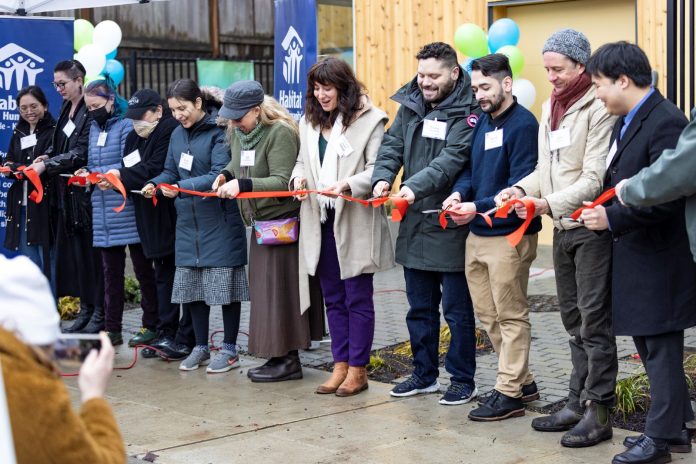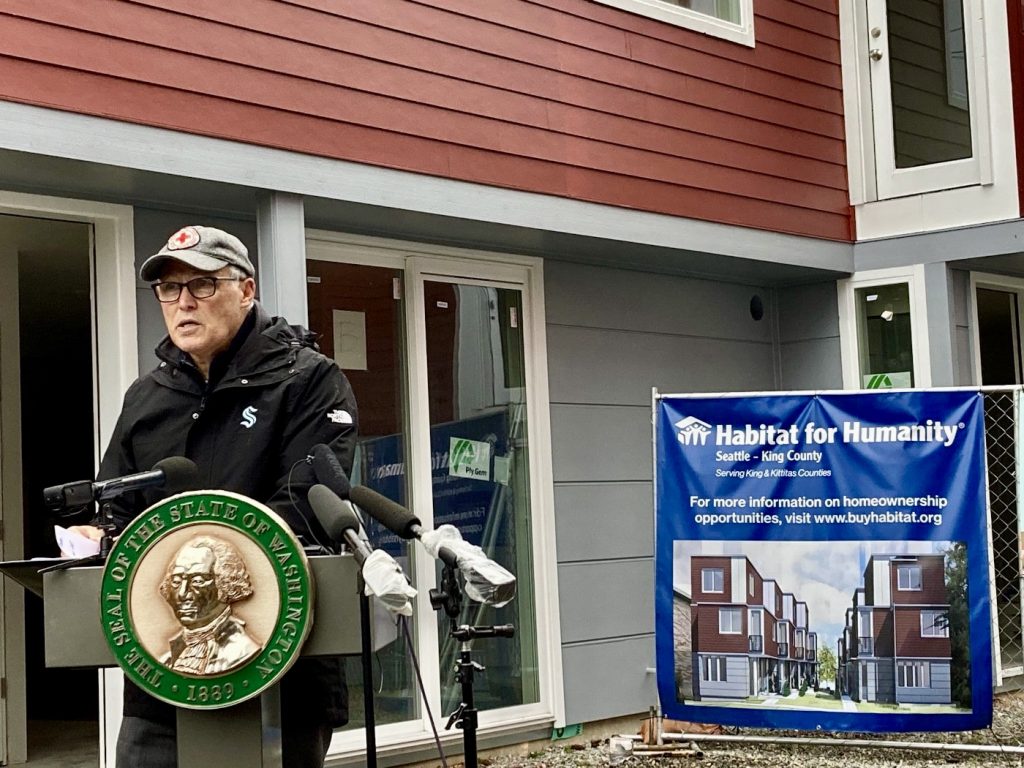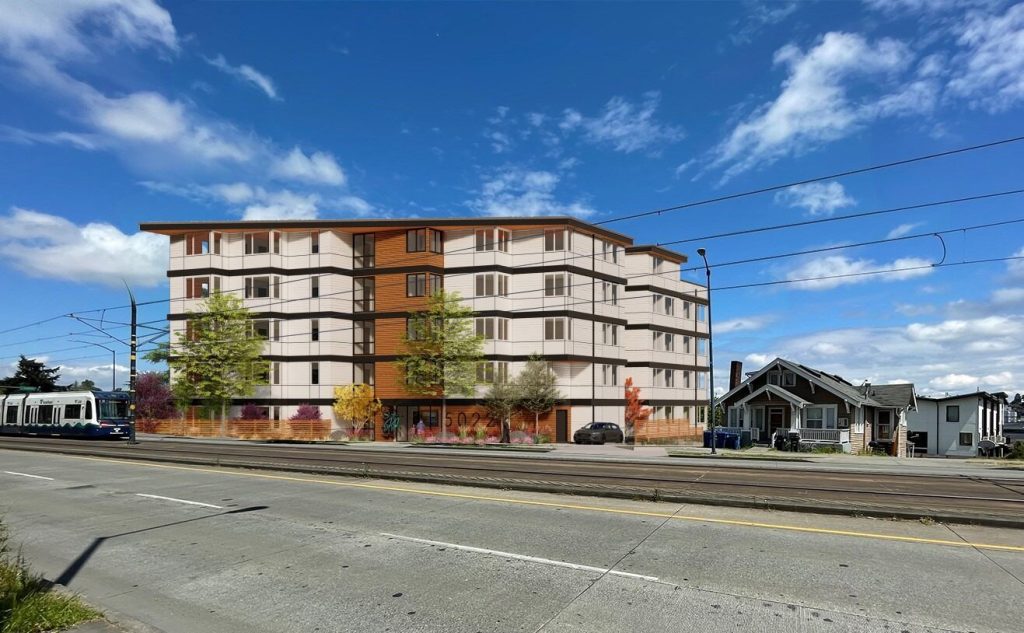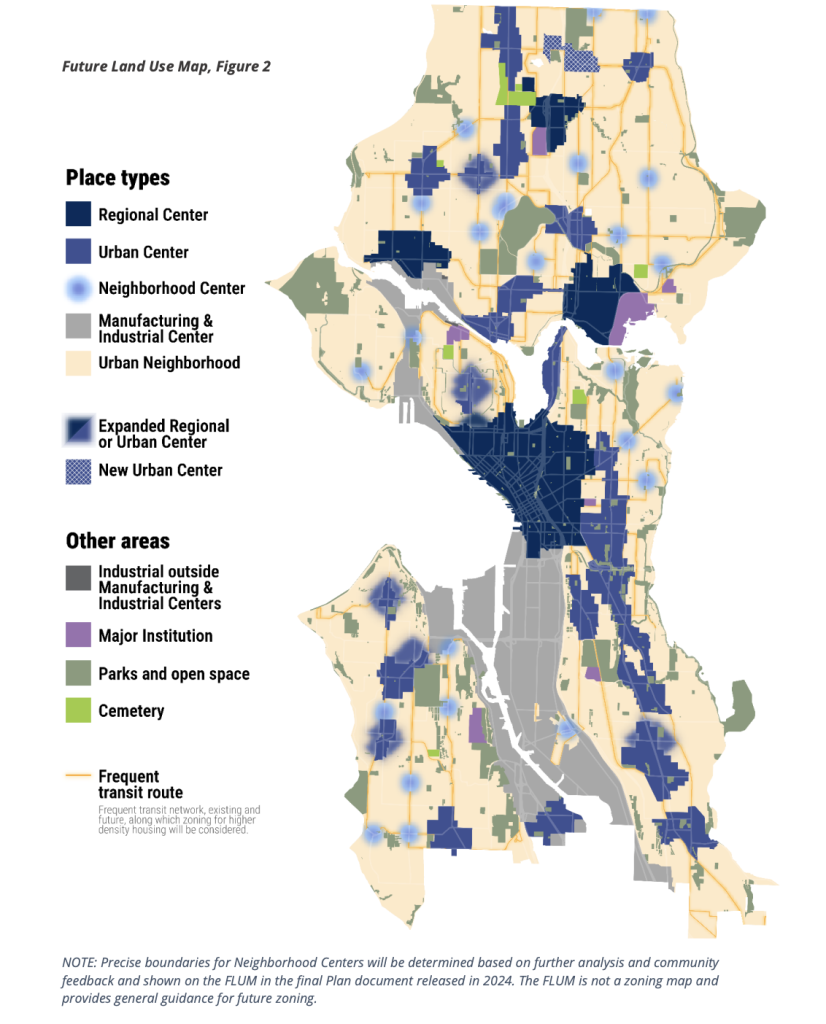
We need a Space Needle state of mind to solve our housing woes.
Every evening, thousands of families in Seattle and the metro area wonder where they’ll live next year. Will they be able to renew their lease? Will they be able to afford a mortgage? Will they be able to find a home that meets their needs? The One Seattle Comprehensive Plan is important, because it will affect generations of families like this for decades to come. We must get the One Seattle plan right to create housing solutions, so more of our neighbors don’t have to worry about where they’ll be able to live and, instead, they can start living.
As a permanently affordable housing provider, Habitat for Humanity has worked with community members in Seattle, King, and Kittitas Counties for 38 years. We’ve heard and seen families and individuals buckling under pressure from rising housing prices and very few options.
The path forward is clear: a revised and ambitious Comprehensive Plan that should reform zoning rules and housing policies to allow more homes of all shapes and sizes; and incentivize affordable housing and homeownership. More importantly, we need to build upon our recent historic, nearly $1 billion investment in affordable housing, the Seattle Housing Levy. Systemic problems call for systemic solutions.
Fully implement HB 1110
In 2023, Washington State took a major step towards ending the housing crisis by passing legislation — House Bill 1110 — to legalize the creation of cottage homes, townhomes, duplexes, triplexes, and other midrise multifamily housing types in single-family zones. Cities like Seattle need to treat this as the floor, not the ceiling.
To build new “family-sized” 3- to 4-bedroom homes, we need to make projects financially feasible. Allowing more of these ‘middle housing types,’ to add extra height and adding indoor space as their unit count goes up, especially for affordable housing developments, will make more projects pencil out.

In the Habitat office, we have a bell that rings every time that an applicant finally gets their keys. In that moment, those Habitat home applicants realize they now have a whole world of new opportunities open to them as homeowners. Due to these housing types becoming the new minimum in residential areas across the state, the city can now go above and beyond HB 1110 and we can ring that bell louder and more often for more people across the city of Seattle – if we plan it right.
Do the right thing on parking
In 2012, Seattle eliminated parking mandates in its designated centers and reduced them near transit. A decade later, we successfully worked with the Seattle Office of Planning and Community Development (OPCD) in eliminating parking mandates for affordable housing. The City’s requirements for off-street parking in several residential areas will make desperately needed units less likely to be built.

Removing these parking mandates will save any project tens of thousands of dollars in construction costs and it may make the difference between another affordable unit on the market or not. In our Capitol View community, one of our homeowners, Becaley, has done everything from driving school buses to working in restaurants and now she finally owns a home in a vertical condo building that used to be a single-family lot. If we eliminate parking mandates city-wide then we can create solutions for people like Becaley’s in residential neighborhoods almost overnight.
Build healthier neighborhoods
Instead of having homes in mixed-income neighborhoods and building communities of opportunity, past and present comprehensive plans exempt neighborhoods from requiring more density and featuring development incentives. Penny, one of our prospective Highland Terrace homeowners, will move into a home built in a growing mixed-income neighborhood that will soon connect to the West Seattle light rail. She is within walking distance of two commercial centers, and she will be within a five-minute walk of a RapidRide bus line.

In the 2022 Homeownership Disparity Study by the Department of Commerce that we with our statewide affiliate, it noted that legalizing middle housing is critical to closing the gap that has resulted in 68% of White Washingtonians owning their own home, compared to 33% of Black Washingtonians. For communities of color and legacy families, we need to ensure they can develop their properties, so their families can thrive. And that means not just developing accessory dwelling units, but incentivizing families and communities to develop other mid-rise housing solutions, as affordable homes for the community.
Our project in the Rainier Valley made possible by OPCD’s Rainier Valley Homeownership Partnership program and Equitable Development Zoning, is an example of this. We’re developing 59 affordable condos with African Community Housing and Development that will contribute towards the goal of seeing thousands of new Black and people-of-color homeowning families in the region!
The One Seattle Plan needs a Space Needle state of mind
We are asking that Mayor Harrell and the Council consider embracing a “Space Needle State of Mind.” In 1961, Seattle and America looked up to the stars and dreamed of a future where everyone had abundance to realize their dreams. Our iconic Space Needle was built as a symbol to reflect the optimism that Seattle and America felt. We should see the challenge of planning for more than 112,000 new units of housing as an opportunity to imagine a city where everyone has a safe, affordable, and decent place to live.
Comment on the plan
Through 5pm May 20, OPCD is accepting public comment on the Comprehensive Plan via its online engagement hub. You can leave comments there or through Habitat’s comment tool. Habitat for Humanity Seattle-King & Kittitas Counties is a steering committee member of the Complete Communities Coalition and full team member of the Black Home Initiative.
Ryan Donohue is Chief Advocacy Officer atHabitat for Humanity Seattle-King & Kittitas Counties. He brings 18 years of advocacy and political experience to the affiliate, helping to bring creative problem solving to addressing the affordable housing crisis facing our communities. As leader of Habitat's Advocacy team, he builds relationships with elected officials, policymakers, and other organizations across King and Kittitas Counties to try and build the policy foundation so we can fulfill our vision of building a world where everyone has a safe, decent, and affordable place to call home. Prior to his time at Habitat, he worked to help win electoral and policy victories across 24 different states at everything from President down to school board and everything in between.


